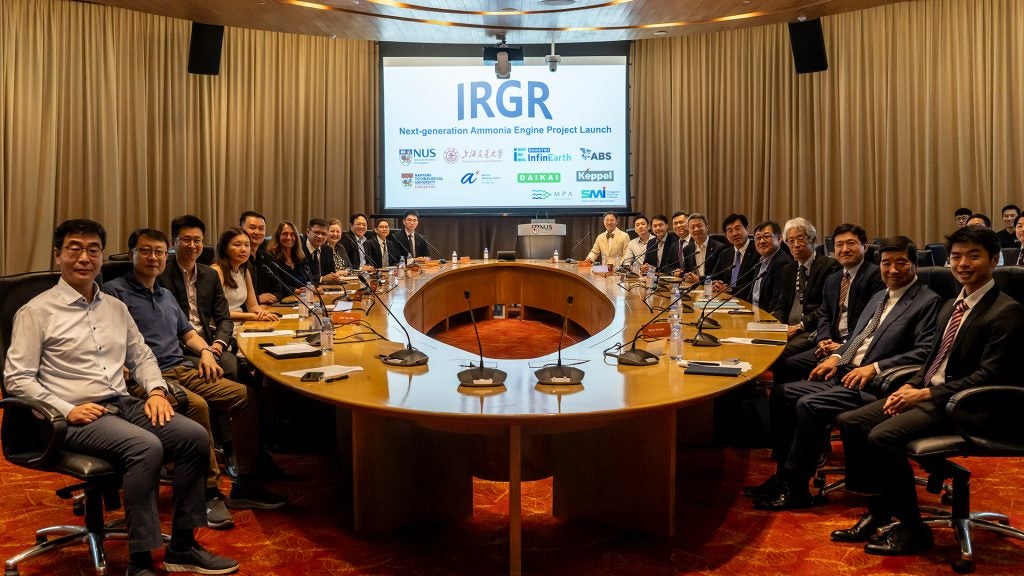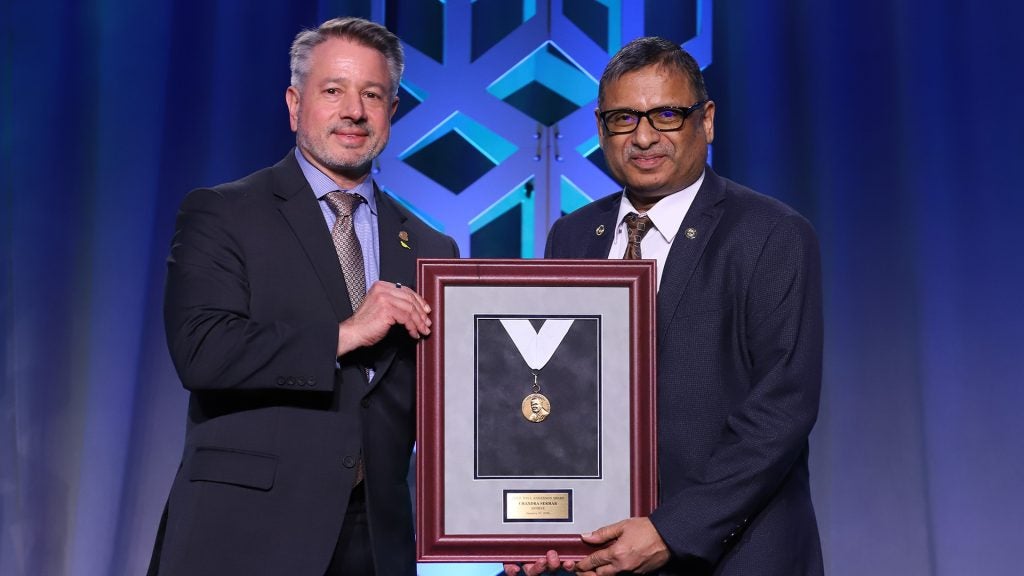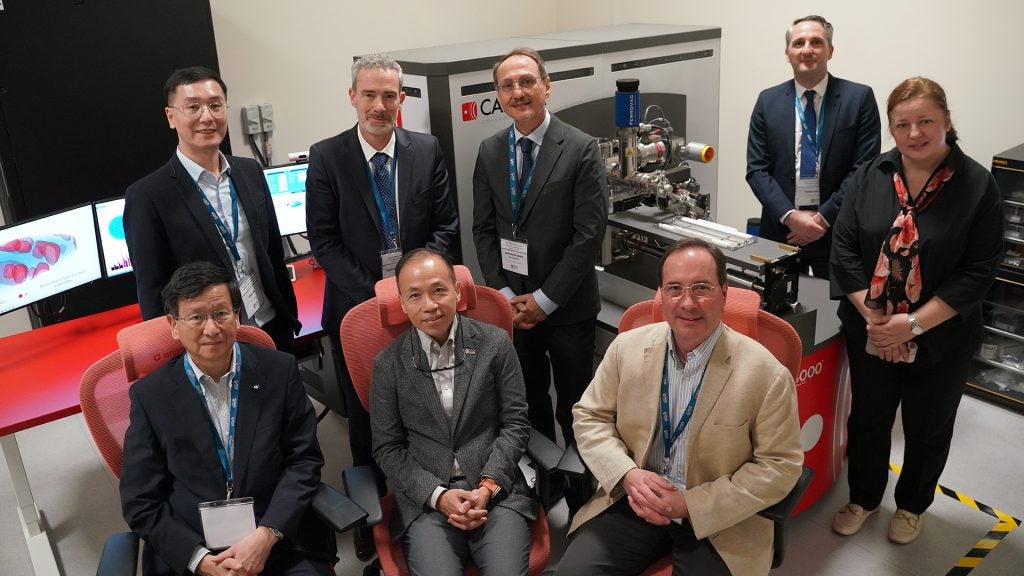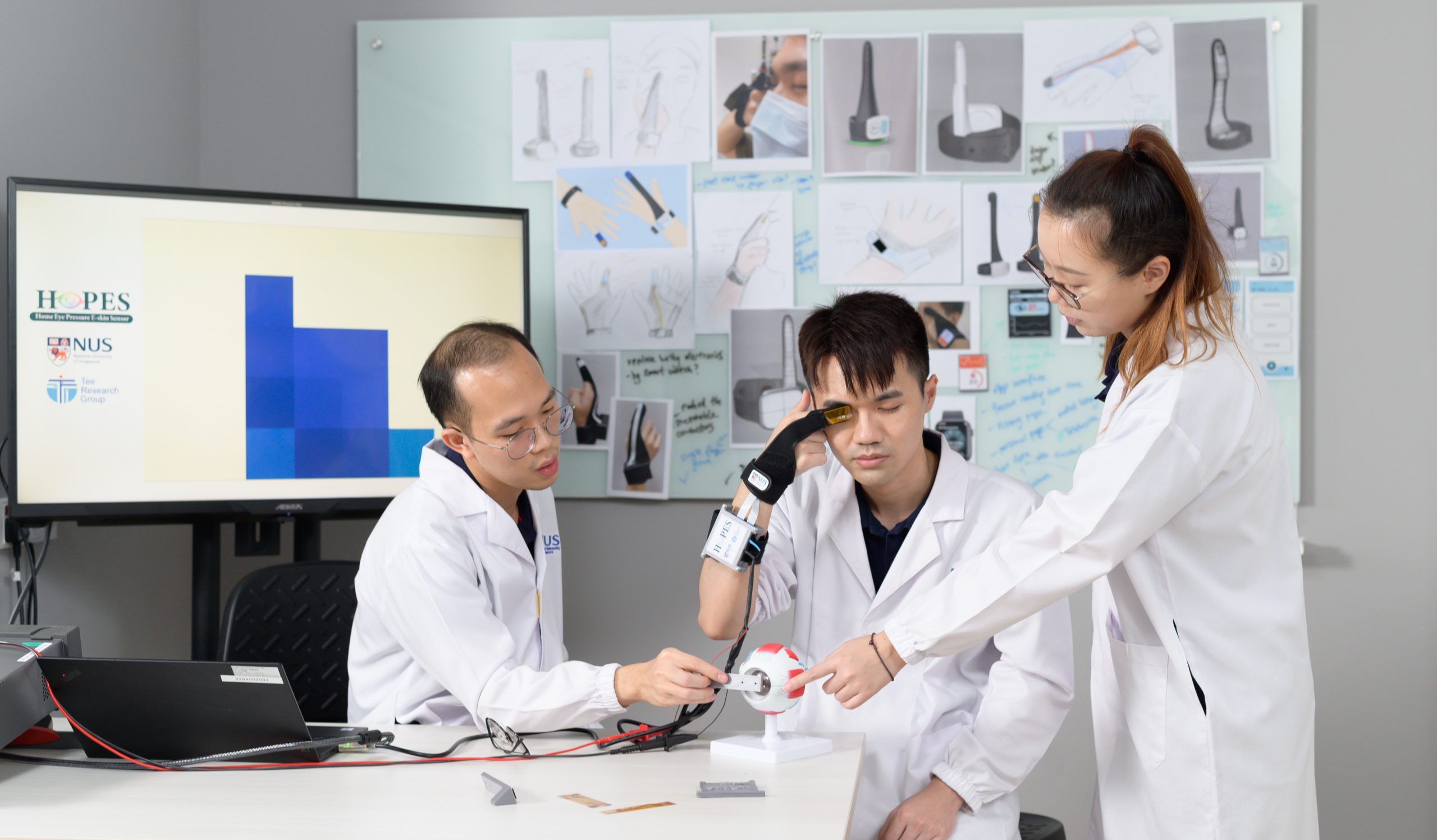
A team from NUS Engineering has been selected as the national winner of the annual James Dyson Award, for their design for an easy to use at home glaucoma test.
The winning design, called HOPES (Home Eye Pressure E-skin Sensor), is a wearable biomedical device that uses advanced patent pending sensor technology and artificial intelligence to enable patients to do intraocular pressure (IOP) tests themselves, conveniently and with a much higher degree of accuracy than currently available tests.
The team members behind HOPES are Kelu Yu and Si Li (both PhD students, Materials Science and Engineering), and David Lee (Research Assistant and Electrical and Computer Engineering graduate). They were supervised and supported by President's Asst Prof Benjamin Tee (Acting Deputy Head for Innovation & Outreach at the the Department of Materials Science and Engineering).
Yu Kelu, co-inventor of HOPES, said the inspiration came after her father was diagnosed with glaucoma, and that she saw a need for an easy to use and reliable solution that could empower patients to manage their condition.
"My father was diagnosed with glaucoma in 2019 and suffered from constant eye pain and headache. This personal experience motivated me to delve deeper into the disease and treatments."
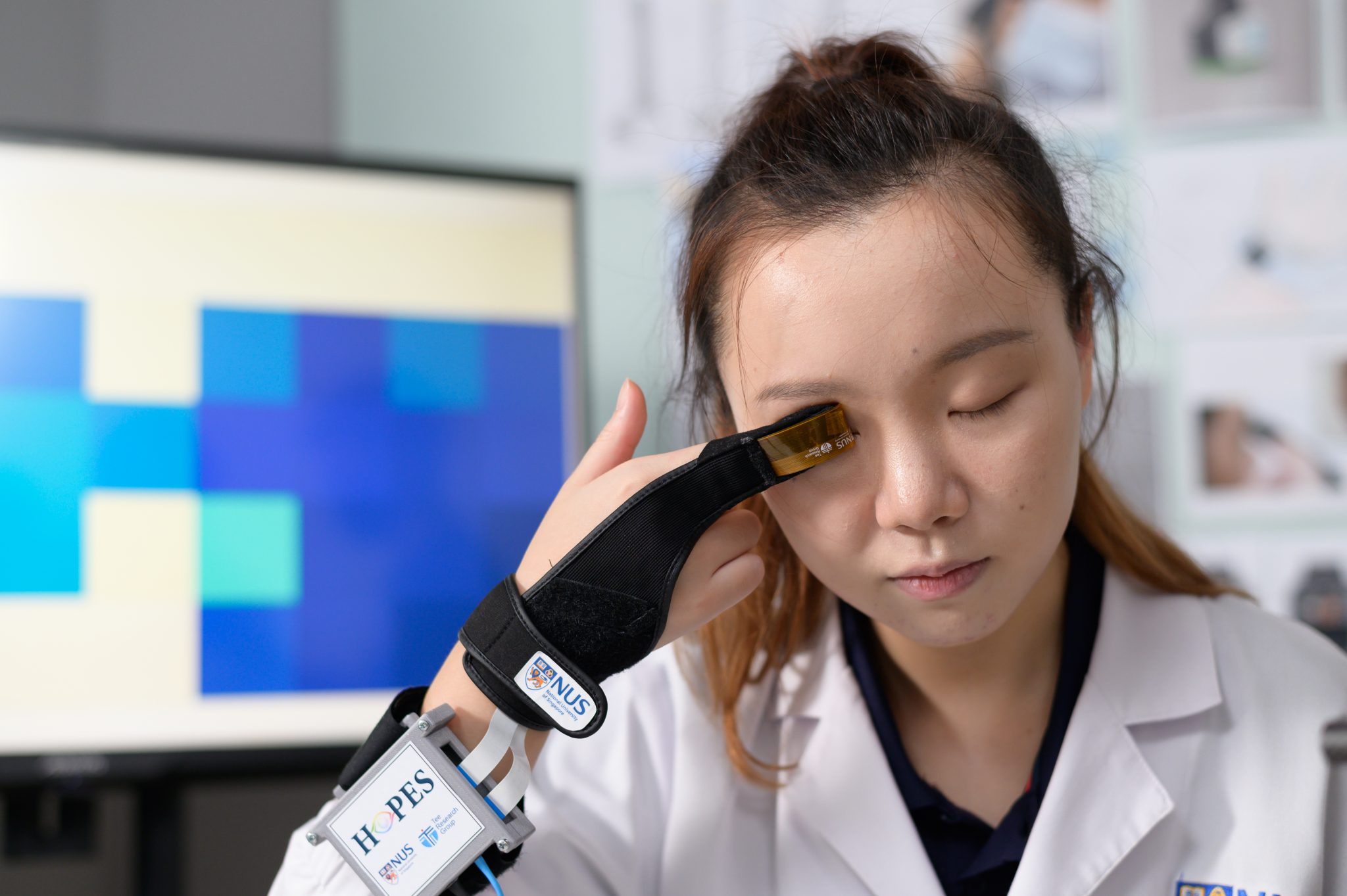
To use the device, patients wear the HOPES glove which has a pressure detecting sensor at its fingertip and pair it with a profile in the HOPES App. Patients then press the fingertip on the centre of the eyelid until hearing 'test complete' notification.
The sensor can capture dynamic pressure data with sub-millisecond precision. This data is processed by machine learning algorithms to continuously and accurately compute users' IOP, which is then presented to users on devices such as a smart watch or other paired platforms, or uploaded to the cloud to be accessed remotely by clinicians.
In Singapore, approximately three per cent of people over the age of 50 have glaucoma. This percentage increases with age and reaches almost 10 per cent for those over the age of 70.
Because it is largely symptom-free, more than 80 per cent of people with glaucoma are unaware of it at time of diagnosis. There is no cure but, if diagnosed and treated early, blindness can be prevented.
Regular IOP monitoring is a critical tool in helping clinicians determine long-term treatment plans.
The HOPES team are currently collaborating with clinicians at the National University Hospital to collect and analyse patients' eye pressure data to train the device's machine learning mode. At the same time, they are working on optimising HOPES' performance, and improving its design.
The team is looking to conduct more clinical trials to improve the device's intelligence, and to synchronise it with their tele-health application interface. Their final step would be to secure funding to support the global commercialisation of their device.
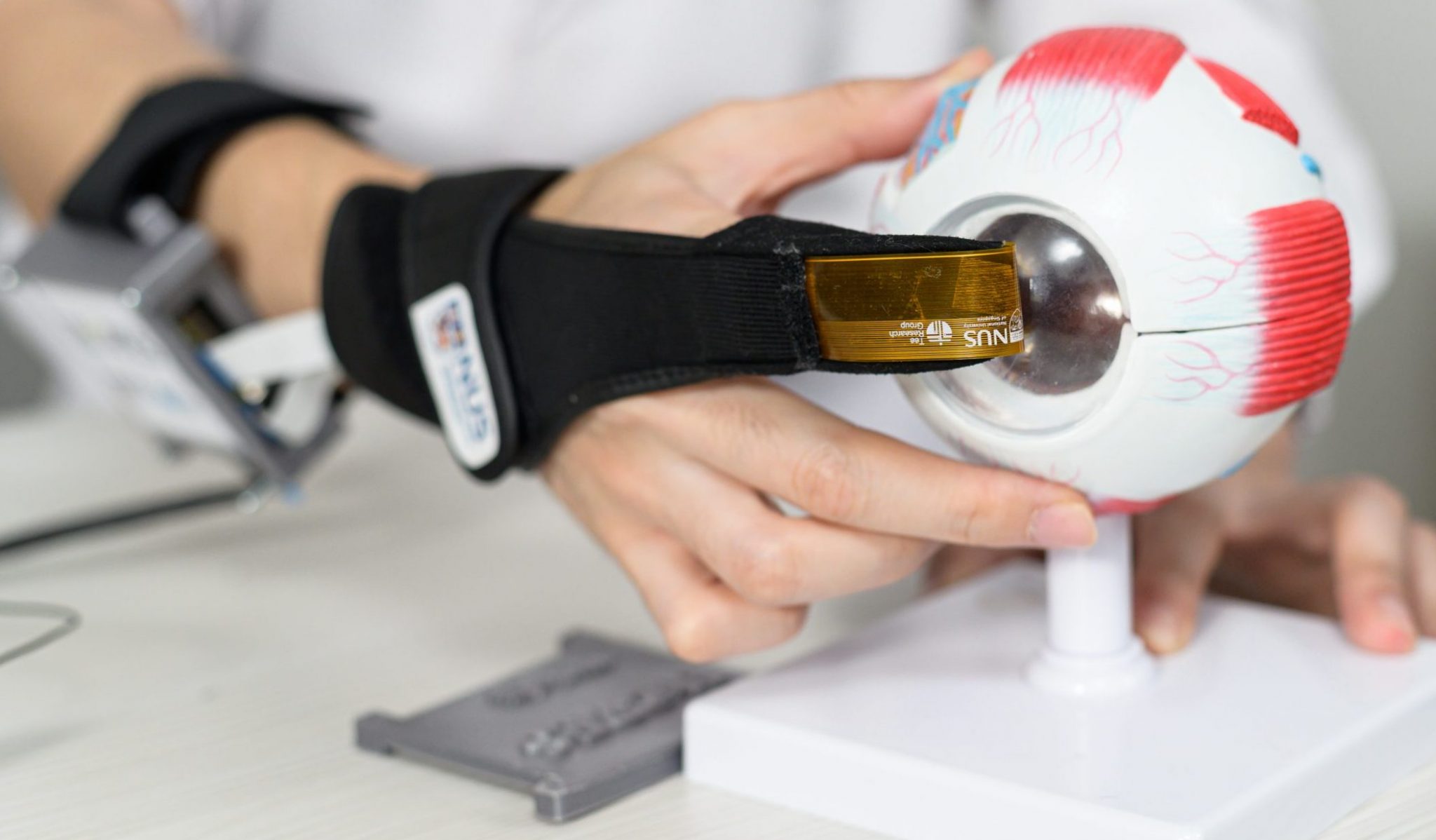
The James Dyson Award runs in 28 countries and regions worldwide. All national finalists in the competition will go forward to the international stage, which will eventually see Sir James Dyson select an overall winner.
Apart from the HOPES team, the teams behind the two national runners in the competition also included members from NUS Engineering. The teams are:
- CurrentPlex, a cost and space effective system for recharging electric vehicles.
- LOTA+, a sustainable sanitation solution that leverages upcycled waste for constructing toilets in slums, peri-urban and rural communities.
The annual competition is organised by the James Dyson Foundation as part of its mission to support design, technology and engineering educational work around the world.
The brief for entrants to the competition is to "design something that solves a problem".
More details about the winners and runners up is on the James Dyson Award website.



